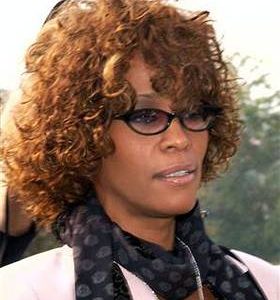Blige’s Nicknames: How “MJB” and “Queen” Became Cultural Icons
When it comes to icons in the music industry, few can rival the impact and resilience of Mary J. Blige. With a career spanning over three decades, Blige has earned her rightful place in the pantheon of musical legends. Yet it’s not just her powerhouse vocals and chart-topping hits that have resonated with audiences; it’s also the nicknames she's embraced along the way—“MJB” and “Queen.” These monikers have transcended mere identity labels, morphing into cultural icons that represent strength, empowerment, and artistic excellence.
From a young girl in Yonkers to a global superstar, Mary J. Blige has always captivated audiences with her raw authenticity. When you think of her, two terms inevitably spring to mind: “MJB” and “Queen.” These nicknames are more than just abbreviations or flattering titles; they embody her journey and influence on countless fans around the world. Let’s take a closer look at how these nicknames evolved into symbols of cultural significance.
MJB: The Brand and the Artist
The term “MJB” is synonymous with Blige’s fierce commitment to her artistry and her fans. It stands for Mary J. Blige, of course, but to her die-hard followers, it represents so much more. It is sleek, modern, and embodies the essence of a multifaceted artist who continuously reinvents herself while staying true to her roots.
Her unique blend of hip-hop, R&B, and soul has had a seismic impact on the music industry, and her fan base—affectionately known as the “MJB Army”—is a devoted force. By adopting “MJB” as an integral part of her brand, Blige has maintained a youthful and relatable image, making her music more accessible to a new generation. As fans eagerly await the next “MJB” album drop, they are also buying into a lifestyle characterized by authenticity, resilience, and empowerment.
Queen: A Title Worthy of a Monarch
The title “Queen” might seem like a bold proclamation, but for Mary J. Blige, it is a crown she wears with pride. Earning her "Queen" status has everything to do with her accomplishments, musical innovation, and enduring influence. Blige’s remarkable ability to infuse emotional depth into her lyrics has led her to be dubbed the “Queen of Hip-Hop Soul.” From delivering hits like “Real Love” to the empowering anthem “Just Fine,” she has touched lives and fostered a sense of community among her listeners.
In a world where women are often sidelined, Blige's message has been one of empowerment and resilience. When fans refer to her as “Queen,” they are not just acknowledging her success; they are celebrating the woman who stands tall against adversity, the singer who has overcome personal challenges to emerge triumphant. This cultural icon symbolically reigns over her domain, championing women’s rights and encouraging fans to embrace their strength and self-worth.
From the Stage to the Screen: A Cultural Phenomenon
Mary J. Blige’s influence goes beyond music; she has established herself as a formidable presence in film and television. With notable roles in projects like “Mudbound” and “The Umbrella Academy,” Blige has expanded her artistic repertoire, further solidifying her status as “Queen.” This evolution from music to acting has captured the attention of both fans and critics, showcasing her versatility as an artist.
Her roles often resonate with fans because they are steeped in authenticity and relatability. Blige brings the same raw emotion to her characters as she does to her music, making every performance feel genuine. Whether it’s through her heartfelt performances or powerful roles, she continues to redefine what it means to be a multi-talented artist.
Cultural Impact: Empowering Generations
As “MJB” and “Queen” have become embedded in the cultural consciousness, they have also made their mark on the broader social landscape. In a time when representation and empowerment are at the forefront, Blige’s journey serves as an inspiration for countless individuals, particularly women of color, navigating their paths in a world that often tries to suppress their voices.
Through her music and public persona, Mary J. Blige advocates for self-love and perseverance. Hits like “I Can Love You” and “Strength of a Woman” resonate on many levels and serve as anthems of empowerment. For young women today, Blige embodies a strong female figure who has fought through adversity, making her an indispensable role model.
In Conclusion: The Legacy of “MJB” and “Queen”
Mary J. Blige’s nicknames—“MJB” and “Queen”—are not just casual terms of endearment; they are powerful cultural symbols that continue to inspire millions. As she forges ahead into new creative territories, these monikers will undoubtedly carry the legacy of her influence for generations to come.
So, whether you’re blasting “My Life” in your headphones or binge-watching her latest acting gig, remember that “MJB” and “Queen” encapsulate the essence of a visionary artist who continues to break barriers. As the world rallies around her, Mary J. Blige remains, unapologetically, both “MJB” and our beloved “Queen.”

